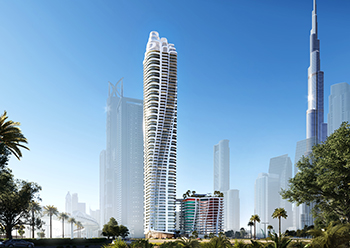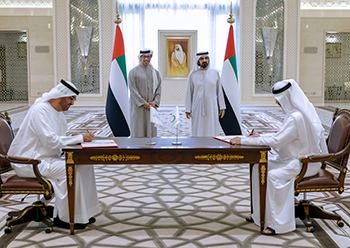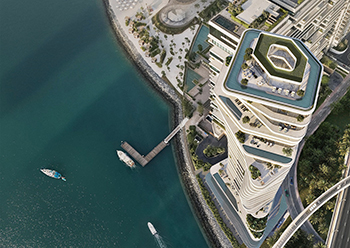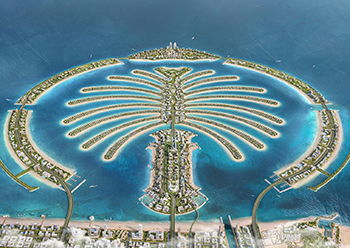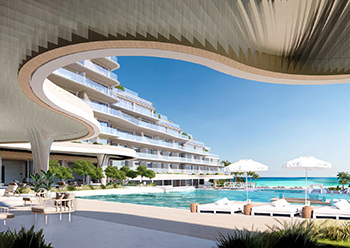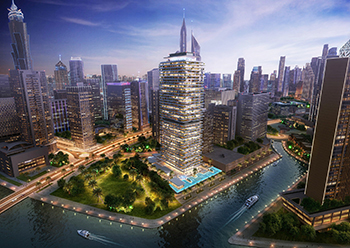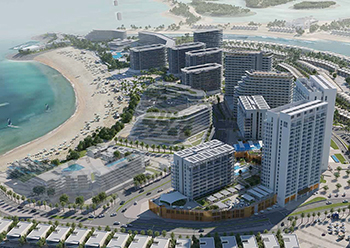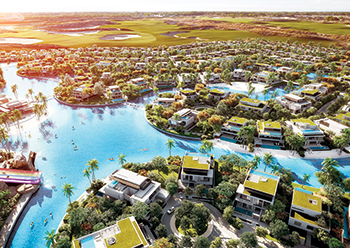
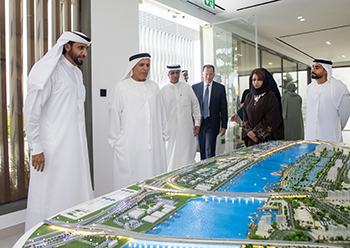 Al Tayer and other RTA and Nakeel officials view a model of the 1,425-m bridge.
Al Tayer and other RTA and Nakeel officials view a model of the 1,425-m bridge.
Dubai's Roads and Transport Authority (RTA) has signed an agreement with master developer Nakheel to construct a 1,425-m bridge to the Dubai Islands project from Bur Dubai. The bridge features four lanes in each direction.
The Dubai Islands project will have a direct entry and exit points on the Bur Dubai side through a bridge stretching across the Dubai Creek between the Infinity Bridge and Port Rashid Development Project.
The bridge, which has a total capacity of 16,000 vehicles per hour in both directions, rises 15.5 m above the waters of the Dubai Creek and features a 75-m-wide canal allowing ships of various types to traverse the creek.
The project encompasses a dedicated lane for cyclists and pedestrians on one side of the bridge and two elevators will be installed at both ends to ease the mobility of pedestrians and cyclists. The project also involves the construction of surface roads extending approximately 2,000 m to connect with the existing roads from both ends of the Dubai Islands and Bur Dubai. It is set to complete in 2026.
"This marks the second agreement under the initiative to provide entrances and exits leading to Dubai Islands, a venture that RTA successfully undertook in partnership with Nakheel in 2020. The project envisaged constructing three bridges at the junction of Al Khaleej Street and Abu Baker Al Siddique Road, spanning 1.6 km that lead to Dubai Islands," remarked Mattar Al Tayer, Director General, Chairman of the Board of Executive Directors, RTA.
"This project forms a key phase of Al Shindagha Corridor Improvement Project. It is one of the largest projects currently being undertaken by RTA with a total estimated cost of AED5.3 billion. It encompasses the construction of 15 intersections spanning 13 km in total. Due to its massive scope, the project had been split into five phases," noted Al Tayer.
"The Corridor serves Deira and Bur Dubai in addition to several development projects such as Dubai Islands, Dubai Seafront, Dubai Maritime City and Port Rashid. As such, it is expected to serve about one million people. It will slash the travel time from 104 minutes to just 16 minutes by 2030, and the time saved over 20 years will be worth about AED45 billion," he added.








.jpg)




.jpg)




























.jpg)

































